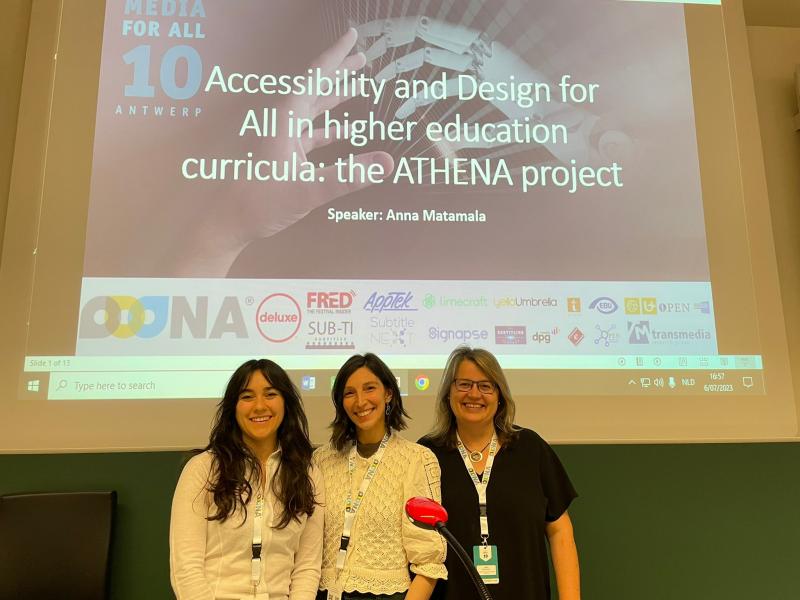
On the 5th and the 6th July, ATHENA project - Bringing Accessibility and Design for All into Higher Education Curricula was presented at the 10th Edition of Media for all Conference in Antwerp.
This year the conference was focused on the role of human agents in the translation process, with so many passionate speakers who showed how the roles of users, translators, policymakers, industry and educators have changed over the past decade under the influence of digitisation and globalisation.
Fascinating research and projects on Audiovisual Translation, Media accessibility and inclusion have been presented in different panels and workshops. Partners of the Athena project, such as EDF - European Disability Forum and UAB - Universitat Autònoma de Barcelona took part in various panels presenting the first preliminary results of the first six months of the ATHENA, funded under the Erasmus + call and led by the European Disability Forum.
The presentations highlighted how Accessibility and Design for All are central to the full participation of persons with disabilities in all societal domains, from education to work, culture or entertainment. Professionals from a wide range of areas should learn about guidelines, standards, techniques and tools that facilitate access to persons with disabilities, their communities and society as a whole.
However, Accessibility and Design for All are still not part of all higher education curricula.
Anna Matamala, PhD and Full Professor at the Universitat Autònoma de Barcelona, said, “the ATHENA project aims to overcome this gap by developing a set of recommendations on how to integrate Accessibility and Design for All into higher education. The academic and professional audience very well received this ultimate aim of the project”.
Irene Hermosa, PhD in Translation and Intercultural Studies at the Universitat Autònoma de Barcelona, said, “Accessibility and universal design are currently incorporated in some course competences and learning outcomes, but only in certain university degrees such as Education and Computer Engineering. However, mentions of these topics are scarce and, in many university curricula, non-existent”.
During the debate with the audience, she highlighted “the importance of lecturers being aware of the specific applications of universal design to their fields, as not all universal design principles may apply to all fields. We should bear in mind that they stem from the field of Architecture”.
The discussion brought the enthusiasm of the partners in working together to support the higher education sector in becoming more interconnected, innovative, and inclusive, as well as accelerate the higher education transformation throughout Europe to train future generations in knowledge for an inclusive society.
- Log in to post comments